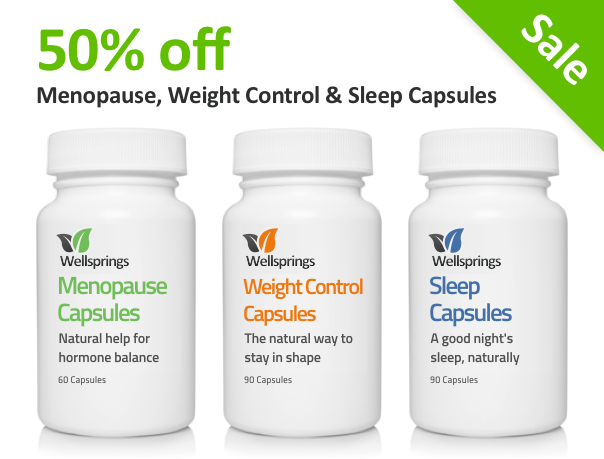Adaptogen Help For Stress
These amazing herbal compounds can affect your hormones, your adrenals and help you fight stress.
Adaptogens are a unique group of herbal ingredients used to improve the health of your adrenal system, the system that’s in charge of managing your body’s hormonal response to stress.
What are they?
The name is quite self-explanatory: they are able to “adapt” their function according to your body’s specific needs.
There are around 20 plants that qualify as adaptogens, a term coined in 1947 by a Russian pharmacologist who was investigating the stress-busting and energy-enhancing herbs that traditional Chinese and Indian Ayurvedic doctors had been using for centuries.
They are quite heavily researched, with studies showing how and why they work to reduce stress hormones in your body. To qualify as an adaptogen the plant has to be non-toxic, so they are generally safe to take, although some shouldn’t be used in pregnancy.
As a precaution if you are on prescription medication you should always check with your doctor or pharmacist first.
What can they do?
They help strengthen the body’s response to stress and enhance its ability to cope with anxiety and fight fatigue – slowly and gently, without jolts or crashes.
Stress affects all our functions: physical, mental and emotional. It is linked to low energy, lack of interest in sex, weight gain and hormonal imbalance.
When you’re under stress your adrenal glands are pumping out the hormone cortisol, which makes your heart race, constricts blood vessels and generally prepares your body to fight or flee the threat. If it is not safely dispersed that adrenaline stays in your system with very unhealthy effects and adaptogens have a balancing effect and seem to help reset that stress response.
Which do you need?
The main 5 adaptogens all have slightly different functions, depending on what you need, and you will find them in herbs, supplements and now even in skincare, tea and smoothies.
Some cafes in London now offer adaptogenic lattes, or you can sip adaptogenic tonics with names such as Perseverance (containing ashwagandha) or Patience (containing schisandra).
Rhodiola gives you more energy as it helps the cells use oxygen more efficiently. Rhodiola is one of the most effective adaptogens for relieving stress and anxiety, and is also energising.
Traditionally it has been used as a herbal cure for anxiety, fatigue, anaemia, impotence, infections, headache, and depression related to stress. People have also used it to increase physical endurance, work performance, longevity, and improve their resistance to altitude sickness.
Maca root is one of the ‘superfoods’ and lowers blood pressure and can also be added to a smoothie to boost energy and libido.
It has been used both to help with symptoms of menopause and other benefits include increased fertility in both men and women, a booster for the immune system, and increased energy, stamina, improved sexual function, memory, and focus.
Ashwagandha is also referred to as Indian ginseng and is part of the nightshade family. It has long been used in ayurvedic medicine to combat stress, fatigue, lack of energy and to treat problems with concentration.
Also has been shown to reduce levels of the stress hormone cortisol by an average of 27.9 per cent, and causes a lowering of depression and anxiety scores of more than 70 per cent over eight weeks.
Holy Basil (Tulsi) can be consumed as a tea for treating anxiety and is extremely beneficial for strengthening immunity, fighting bacterial & viral infections. It is rich in antioxidants which help in mitigating stress and conditions like diabetes and high blood pressure.
Asian ginseng is one of the most valued medicinal plants in the world. It’s believed to affect the body by influencing metabolism within individual cells, and it has been studied extensively for its ability to help the body withstand stress.
Western herbalists say that it restores and strengthens the body’s immune response, promotes longevity, and enhances the growth of normal cells. Research indicates that it promotes a sense of well-being and may protect against some kinds of cancer.
Ginseng is also said to increase energy in women, particularly at menopause, and is not recommended for pregnant or breastfeeding women.
Caution: At the recommended dose, ginseng is generally safe. Occasionally it may cause agitation, palpitations or insomnia. Consuming large amounts of caffeine with large amounts of ginseng may increase the risk of over-stimulation and gastrointestinal upset. If you have high blood pressure, your blood pressure should be monitored when taking it.
Helpful information:
The benefit of using herbs alongside bioidentical hormones for menopause symptoms is that they work with our bodies in what we call an “adaptogenic” capacity, meaning they can adapt to our unique physiological needs.
Certain herbs stimulate hormone production; others can mimic the actions of our hormones; and others bind to our hormone receptors. The key benefit with herbs is that your body can access as little or as much as it needs of them. This is very different from prescription medications which are generally formulated to be one-size-fits-all solutions that tend to overwhelm the body’s natural response.
For hormone balance and symptom relief you may need bioidentical progesterone or a combination of progesterone and oestrogen and all the adaptogens work to increase the effect of hormone creams.

















